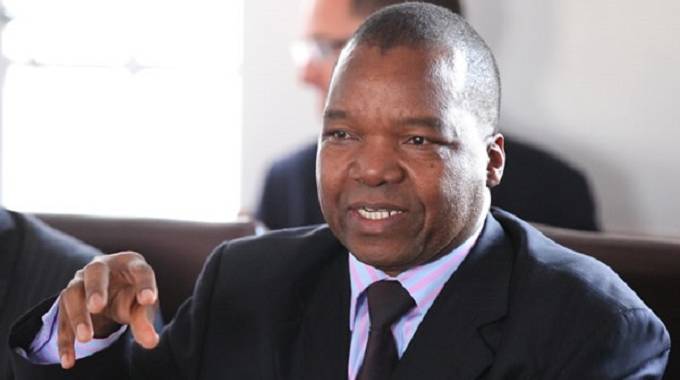EDITORIAL COMMENT: RBZ interventions to restore market confidence, spur economic growth

THE liberalisation of the United States dollar exchange rate against Real Time Gross Settlement (RTGS) balances, bond notes and all currencies in the multi-currency basket will not only formalise trade in foreign currency but kill the black market trade in forex while stabilising the economy in the long term.
Having listened to cries from industry and other stakeholders in the economy, the Reserve bank of Zimbabwe has obliged by bringing sanity to the foreign currency market which was causing massive distortions in the economy through promoting inflation and wanton price hikes.
The eagerly-awaited 2019 Monetary Policy Statement delivered by RBZ Governor Dr John Mangudya on Wednesday was a masterstroke in that it ring fenced RTGS balances while promoting exports, boosting diaspora remittances and investments and eliminating multi-tier pricing.
It also denominated existing RTGS balances, bond notes and coins in circulation as RTGS dollars to establish an exchange between current monetary balances and foreign currency. By establishing an interbank market, the RBZ has dealt a body blow to the parallel market as forex trade will now be conducted through banks and registered Bureau de Change on a willing buyer-willing seller basis.
Crucially, the interbank market unshackles manufacturers, particularly those on the RBZ priority list, to source foreign currency on the formal market and boost production.
The cost of production will also come down as industry will now be accessing forex from a stable, reliable and legal source. This has the effect of reducing imports and lowering prices of goods on the local market. The interbank market will provide a platform for holders of foreign currency to trade legally with those who need it in industry, increasing production, capacity utilisation and creating employment.
It will also choke the black market whose rates will gradually decline until it eventually collapses over time.
Given the lack of foreign currency on the market, the RBZ should be applauded for committing to kick start the interbank market by providing foreign currency to banks as seed capital so that they manage and stabilise the foreign exchange rate. What is critical is that imports of electricity, medicine and fuel will still be done through the RBZ, meaning that the prices will remain at current levels hence there will be no volatility in the economy.
Zimbabweans will be relieved that the RBZ has denominated the existing RTGS balances, other electronic money, bond notes and coins in circulation as RTGS dollars to establish an exchange rate between current balances and foreign currencies.
This means that the value of their money has been preserved and will not be hostage to the whims of the parallel market which was largely volatile. By eliminating the multi-pricing system and pricing of goods in foreign currency, the RBZ is protecting ordinary Zimbabweans who were being ripped off by greedy businesses which were now profiteering on a grand scale, taking advantage of the chaos in the market.
The RTGS dollar will bring calm and order to the market with prices of goods and services expected to decline or stabilise in the short to medium term. To get the US dollar equivalent of current RTGS balances, Dr Mangudya said the prevailing determined exchange rate will apply. The US$/bond rate currently hovers around 1:3.5-4.
“This will bring fairness and transparency in the distribution of foreign currency,” Dr Mangudya said, adding that the policy measures were intended to formalise what was already happening on the parallel market which the bank had no control over. To anchor exchange rate stability, Dr Mangudya said the RBZ would aggressively intervene in the market to sterilise liquidity so as to help contain inflationary and exchange rate pressures.
Zimbabwe has $1,8 billion usable RTGS balances out of a total of about $10 billion. The remainder is tied up in Treasury Bills, RBZ savings bonds and loans to public sector and private borrowers. We welcome the interventions by the RBZ and are confident that they will stabilise the economy and assist in ensuring the successful implementation of the Transitional Stabilisation Programme.
It was critical that the monetary policy statement augmented measures enunciated by the Minister of Finance and Economic Development Professor Mthuli Ncube when he presented the 2019 budget which are anchored on austerity, cost cutting and allocation of resources to critical productive sectors of the economy.
Foreign investors and multi-lateral financial institutions will also have been charmed by the deference to market forces in management of the exchange rate. This inspires confidence in the markets and shows Zimbabwe’s determination to implement far reaching reforms to turnaround the economy. It was prudent that Zimbabwe moves away from the current monetary arrangements as they were pushing the country towards re-dollarisation — a disaster for a small economy as that might spell a recession.
Exporters, who bring in most of the country’s foreign currency and whose incentives were being eroded by forex premiums induced inflationary pressures, will also be happy with the increased foreign currency retention thresholds.











Comments